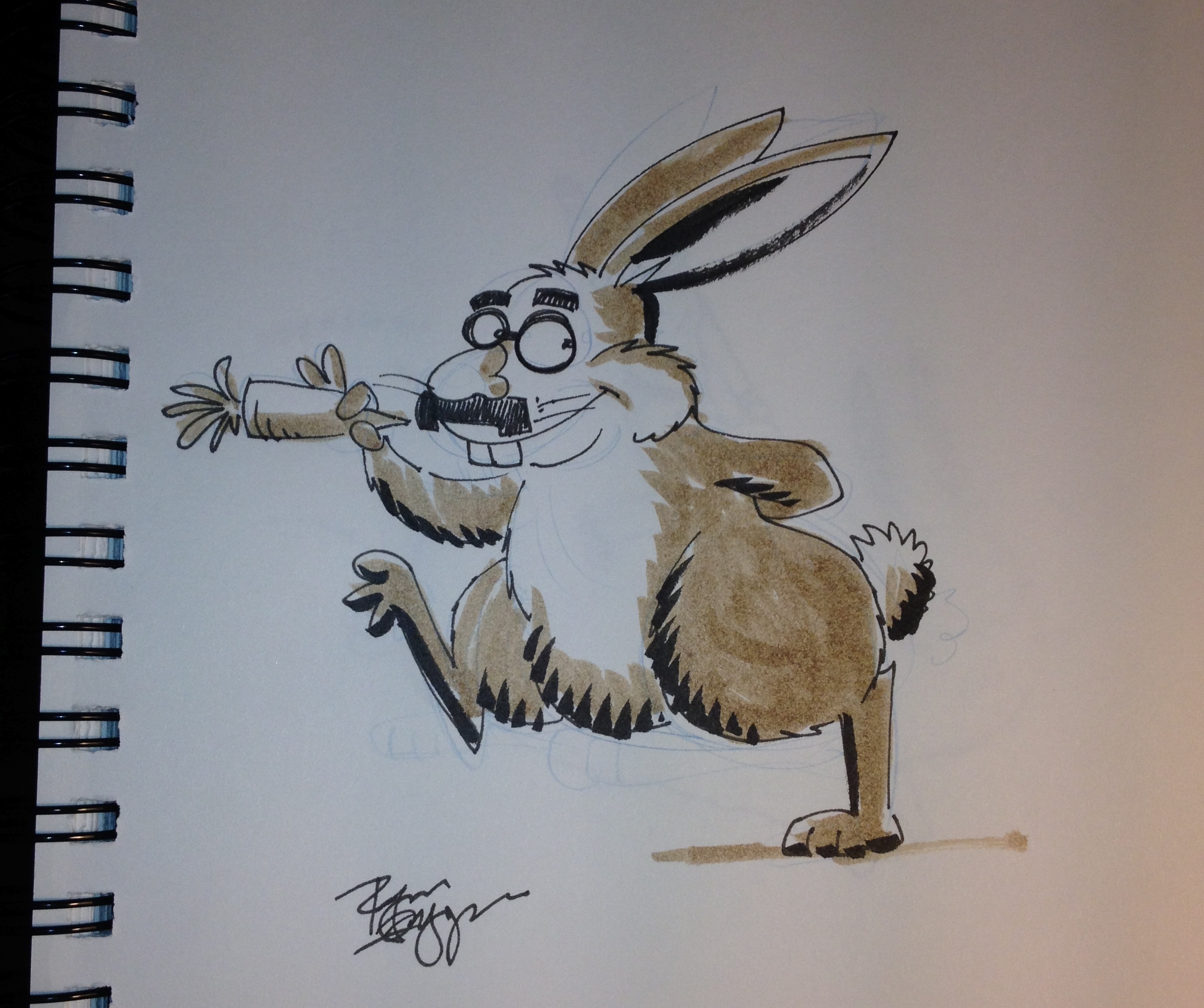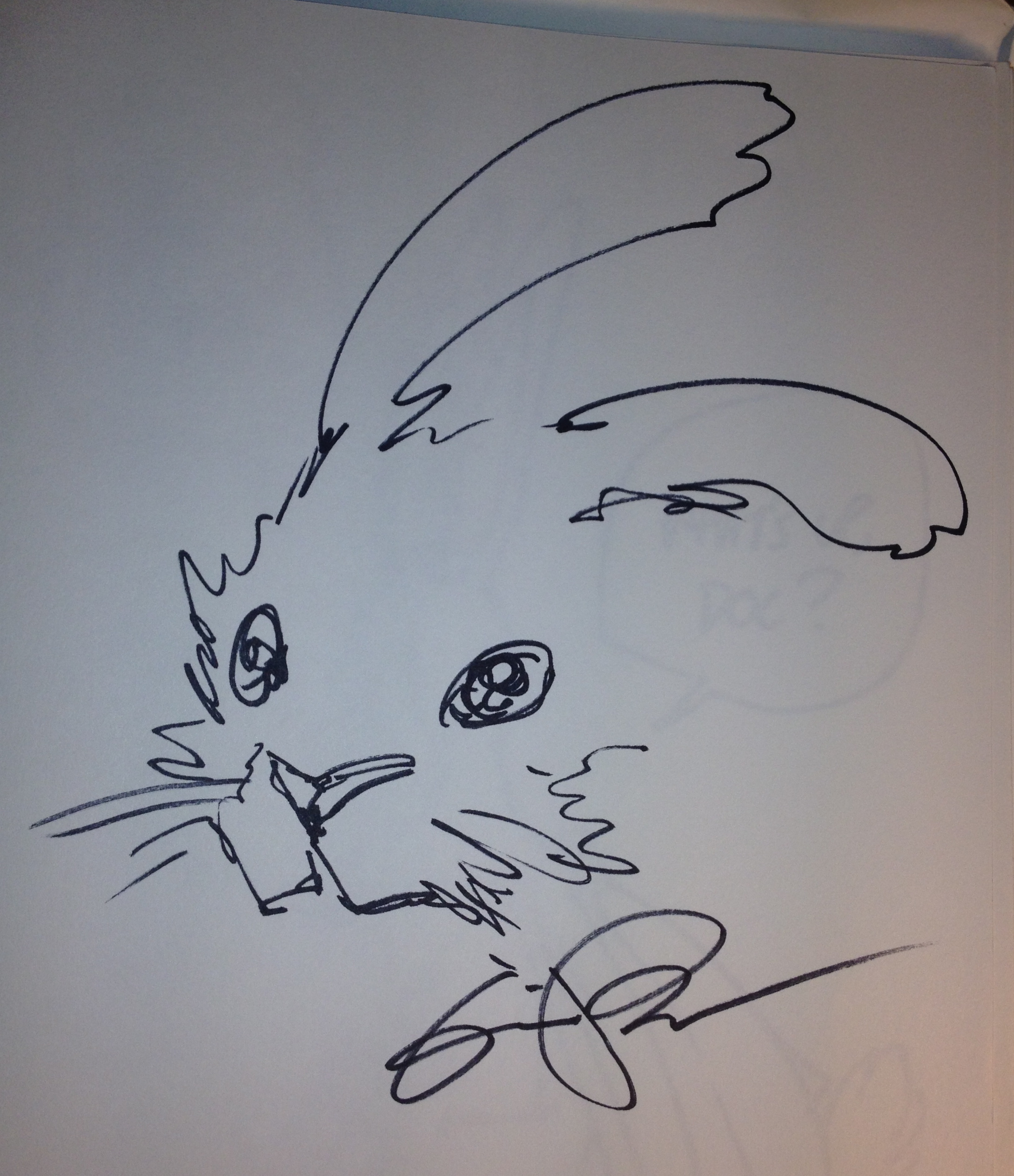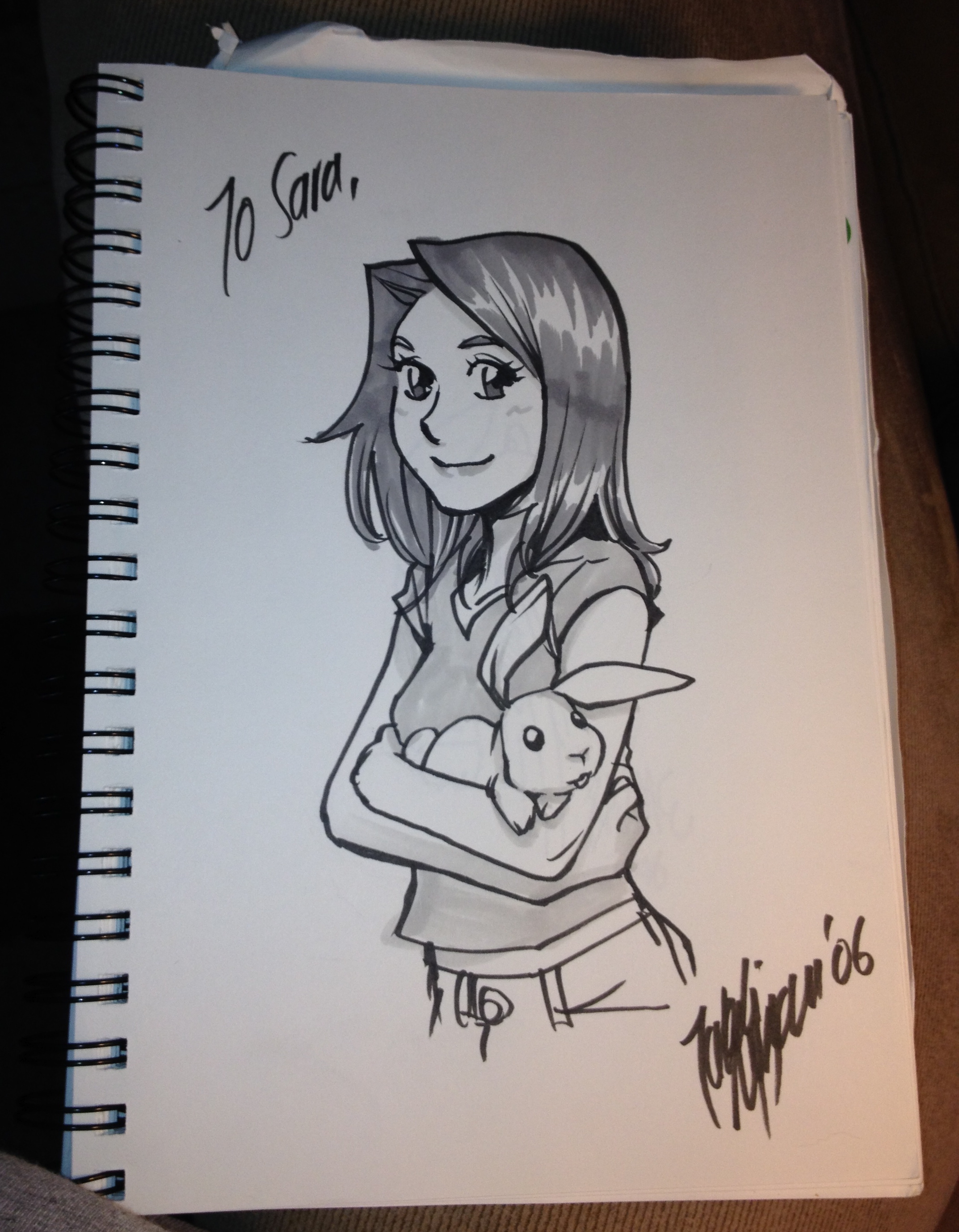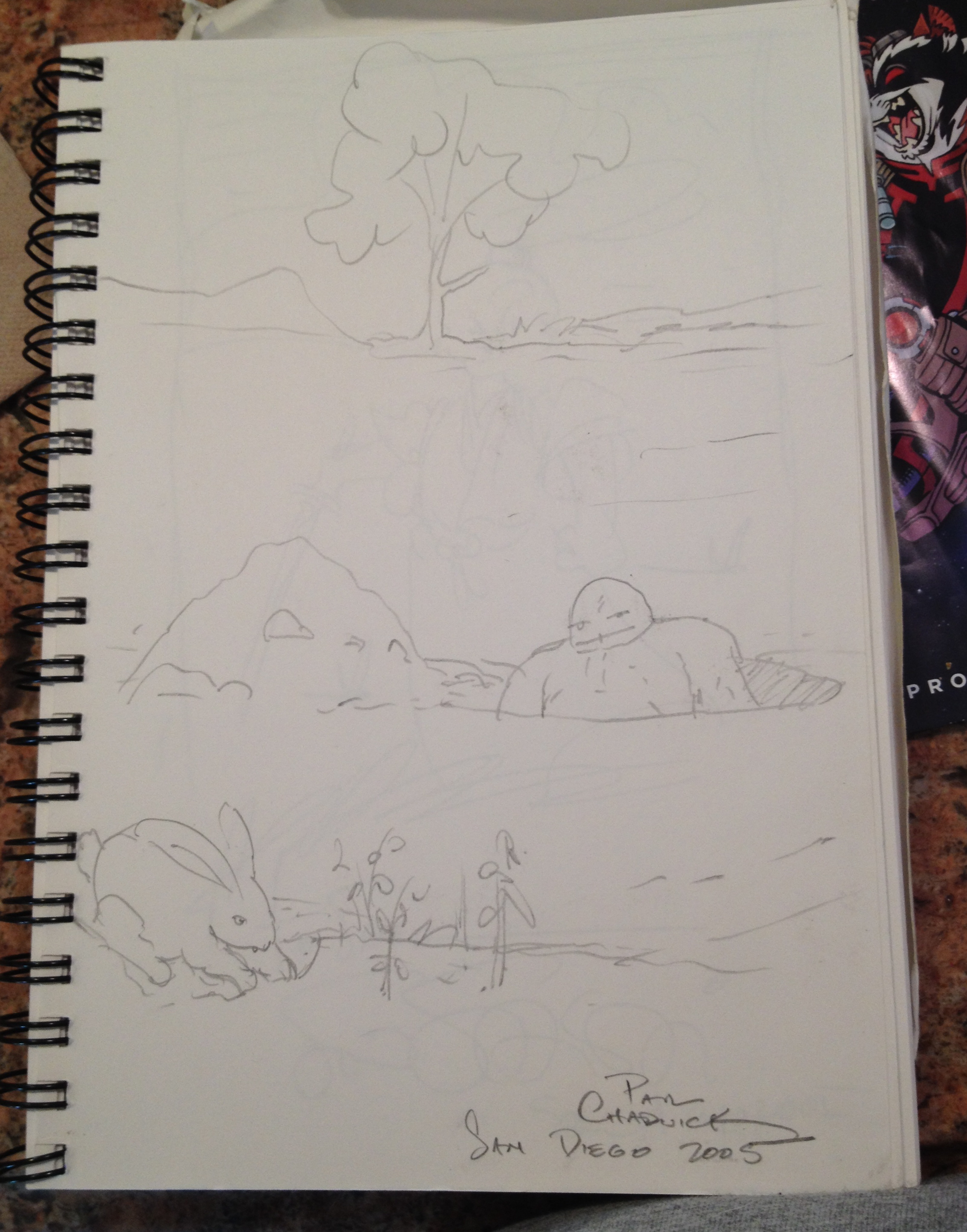How To Start a Convention Sketchbook
 Boston Comic Con has come and gone for the year but comic conventions continue to happen all over the country just about year round. Whether you're a frequent con-goer or you only visit one convention a year, you may be in the market for a souvenir of your time spent at comic cons near and far. If you are, then it's high time you started a convention sketchbook. A convention sketchbook is convenient, inexpensive, and a great memento of your encounters with famous artists.
Boston Comic Con has come and gone for the year but comic conventions continue to happen all over the country just about year round. Whether you're a frequent con-goer or you only visit one convention a year, you may be in the market for a souvenir of your time spent at comic cons near and far. If you are, then it's high time you started a convention sketchbook. A convention sketchbook is convenient, inexpensive, and a great memento of your encounters with famous artists.
Benefits of a Convention Sketchbook
It's cheap. Though getting the sketches you want can end up costing you (more on that later), the initial cost of starting a convention sketchbook is very low. All you really need is the sketchbook, which isn't going to cost you much.
It's portable. Bringing a few issues of comics for your favorite writers or artists to sign is easy. But when you want autographs from several creators in hardcover editions of their works, you're going to be toting around a heavy load in what is usually a very crowded space. A convention sketchbook allows you to get souvenirs from many artists all in one small, easy to carry book.
It's unique. It's highly unlikely that anyone else will ever have a convention sketchbook exactly like yours. It can serve as a journal of your trips, of artist's changing styles, and even of your personal tastes in comics.
The Sketchbook
The sketchbook itself doesn't need to be super fancy, but since you'll want to have it for many years, you don't want to just pick up the cheapest one available either. Look for a good quality paper that's thick enough for markers and inks and won't turn yellow and brittle in a matter of years. Wire bound is preferable to book binding, as it frees artists from having to hold the sketchbook open as they work and ensures a nice flat surface to work on. A hard cover protects your artwork and gives artists something to draw on if a table is unavailable for some reason. If you anticipated removing some pages for framing later on, perforated pages can help to ensure easy removal, though scissors or an x-acto knife can work just as well. Size is up to you, but keep in mind that you'll be lugging this thing around crowded convention floors, sometimes for hours at a times.
Once you've purchased your sketchbook, you'll want to put your contact information on it so that your sketchbook can be easily returned to you if it gets lost. Contact information should be easy to find, so put it on the front or inside front cover. Aside from your name, you'll want to put your phone number, your email address, or both. Including your home address is probably not a good idea, but you can stick a post-it note inside with your hotel information for a particular trip. You can also write the date you started collecting sketches, in case you forget and to help you easily identify this sketchbook should you start another in the future.
Aside from the sketchbook itself, there's really not much else you need. You might want to tear out one sheet of your sketchbook to slip behind the page while an artist is drawing to prevent inks and markers from bleeding through to the next page. It also makes a good bookmark to help you find the first blank page quickly. You can bring along a pen or pencil if you want to, but most artists will have their own supplies with them.
To Theme or Not to Theme

It's completely up to you whether or not to have a theme for your sketchbook. A theme can be as broad or as specific as you want. It can help you avoid being stuck on what to ask for and it can lead to some really unique and interesting drawings from certain artists.

The drawback of having a theme is that you may run into a favorite artist whose work doesn't really fit your theme. You then have to choose between getting a sketch that doesn't fit with the rest of your sketches or missing out on a chance to get artwork from a favorite artist. I didn't even consider bugging Don Rosa to draw me a rabbit, but I wasn't about to pass up a sketch from him either. I'll probably cut this out of my sketchbook at some point and frame it, but for now, Scrooge is the odd duck out.
If your theme is a specific character or group of characters, you'll want to bring along some reference images, the clearer the better. While many artists can look up reference of their phones nowadays, don't assume that all of them can. And you don't want to just assume that everyone knows how to draw Superman only to have an artist you really wanted to have a sketch from tell you that's not the case. A book makes sense if your theme is "characters from the Marvel Universe" or something equally broad. But if it's just one character or a handful of characters, just print out your reference and spare yourself the weight.
Cost

The cost of sketches can vary greatly depending on the individual artist and what you want. Some artists will do anything from a quick pencil sketch of a character's head to a more elaborate full figure drawing in color for free. Others may charge for any kind of artwork, while still others may offer both free sketches and paid commission pieces at a variety of prices depending on size or complexity. I've run into at least one artist who did sketches in exchange for donations to a charitable organization in whatever amount the fan chose. It' s not always easy to find out whether or not an artist charges for sketches beforehand, so having some money ready is a good idea.

An artist who offers both free sketches and paid commissions is usually going to put more work into a paid drawing, for obvious reasons. A commissioned piece may feature multiple characters, a background, or just more complex drawing. While a free sketch is usually done in a matter of minutes, a paid work can take hours and may even need to be picked up the next day. So if you really want something more involved from the artist and are willing to spend the money, ask about a commissioned piece.
I've seen it suggested that free sketches be kept in a separate sketchbook from commissioned ones. The logic is that some artists flip through the sketchbook before they start drawing to see what other artists have done and you don't want an artist doing a free sketch to feel like they have to match the work of one who did a paid piece. Personally, I have one sketchbook with a handful of sketches that I paid for in it. None are so insanely elaborate that I feel like they feel out of place and there are plenty of quick, rough sketches in there as well. Either choice is fine, so it's up to you how you want to handle paid sketches.
Dos and Don'ts

DO prioritize. Most cons are very crowded and many feature a lot of great artists offering sketches. Even if you run yourself ragged, you can't get sketches from everyone. Have a plan of attack and go to see the artists your most excited about first.
DO have cash on hand. This is a good rule of thumb for conventions in general. While modern technology lets some con vendors accept credit cards through a cell phone attachment, not everyone can do this. You don't want to wait in a huge line for a sketch from an artist you love only to realize that you're short a few bucks and nowhere near an ATM.
DO get your sketchbook ready. Having your sketchbook out and open to the next blank page ensures that you don't take up time rooting through you bag to dig your sketchbook out when you reach the front of the line.
DO be flexible. Not every artist is comfortable drawing everything. Artists can even forget how to draw characters they worked on if their run on that comic was a long time ago. Reference can help, but sometimes you'll want to have a backup plan or be willing to ignore your theme to get a particularly coveted sketch.
DO consider buying something. While it's not required, it is a nice gesture to purchase something the artist is selling if you're getting a free sketch. It's fine if nothing strikes your fancy or if you already own everything the artist has for sale. But take a minute to peruse their wares and see if there's anything you want.
DO be nice. It almost goes without saying, but being friendly and polite can go a long way. Conventions can be hot, crowded, noisy, and all around stressful, and sometimes people unintentionally take that stress out on people who don't deserve it. Say "please" and "thank you" where appropriate and let the artists know how much you appreciate them being here and drawing for you. They may not hear it from everyone, so make sure they hear it from you.

DON'T micromanage. If you're getting a free sketch, keep your request to what character you want and maybe one additional ask. A commissioned drawing gives you a bit more freedom to ask for stuff, but at some point you need to back off and let the artist make the decisions. When I went to get the sketch shown above, what I had in mind was "Concrete holding a rabbit." But if I'd been that specific, I wouldn't have gotten the sketch Paul Chadwick came up with, which was much more interesting.
DON'T monopolize the artist's time. If you're getting a sketch that takes ten minutes or less, it is perfectly reasonable to stand around and talk with the artist while your sketch is being drawn. But getting a drawing that takes hours to do does not entitle you to have an hours long conversation with the artist while everyone else waits. Hand off your sketchbook, say what you need to say, and then let the next person have a turn. If you absolutely must hang around while your time-consuming artwork is created because you're doing something like filming the process, step to the side so other people can meet with the artist while you film and you're not blocking the table. Whatever kind of art you're getting, keep your interaction short but sweet. A hello, a sketch request, a few compliments on the artist's work and a brief personal story about how that work affected you, followed by a thanks for the sketch, is fine. Your entire life story is not.
If you've got questions about starting a convention sketchbook or you want to show off some of your own prized sketches, let us know in the comments.
